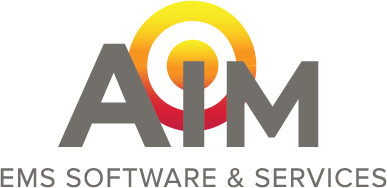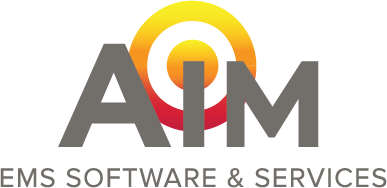.png?width=1920&height=1080&name=Buying%20EMS%20Billing%20Software%20Blog%20(1).png)
Billing transports quickly and accurately isn’t a nice-to-have: It’s the only way to get reimbursements in sooner, capture more revenue, and keep cash flowing. If you’re like many EMS agencies, you’re thinking about ways to optimize your billing in these challenging times—whether it’s replacing an expensive EMS billing solution that no longer offers the value-based solution you need or moving your billing in-house. In either case, you need billing software that’s up to the task.
But how do you choose an EMS billing solution that helps you achieve critical goals like improving billing speed and accuracy, reducing costs, and enhancing cash flow? Read on for some best practices for choosing the best EMS billing solution for your needs.
Get a Good Start on the Process
Before you invest in new EMS billing software, think through what you hope to achieve. Do you need more advanced functionality than your current solution provides? Are you looking for more cost-effective billing software because your existing solution has become too expensive? Do you want to move away from outsourced billing to gain more control over the process? Documenting your goals upfront helps you keep them in focus as you evaluate different EMS billing software options.
Focus on the Top Criteria for EMS Billing Software
Assessing various software solutions can seem overwhelming. But while every EMS agency operates slightly differently, there are common criteria that prove essential when you’re evaluating EMS billing software options. As you research and review various offerings, keep questions like the following in mind.
- Is the software cloud-based? A cloud-based EMS billing solution shifts the burden of managing and administering the software to the vendor, freeing your team from time-consuming tasks like installing software, handling updates, and assuring security.
- Is it modular? If you use dispatch and ePCR software modules from different providers or through your state, you might only need to replace your billing software. On the other hand, you might prefer to buy all three modules from one vendor. The software you choose should support either path, and also provide full integration across all your modules.
- Is it purpose-built for EMS billing? Some solutions are designed for general medical billing, which means they won’t reflect the unique nuances and challenges of EMS billing.
- Is it configurable to your needs? To improve billing speed and accuracy, you need the flexibility to configure the EMS billing software to the way you operate. For example, it’s best to choose a solution that allows you to customize the billing workflow, specify which fields to auto-populate with data from your dispatch or ePCR module, and customize hospital lists and allowable charges, among other features.
- Will it help you maintain compliance? It’s tough to keep up with changing regulations and stay compliant throughout the billing process. Look for software with features that help your billers maintain data privacy and collect and track data for audit purposes, for example.
- Will it streamline your billers’ work? In difficult economic times, you need the ability to handle more billing volume without adding staff. Assess whether the EMS billing software will eliminate duplicate data entry and automate critical steps, like insurance verification and many others.
- Will it improve billing accuracy and reimbursement? EMS billing software should include multiple features that reduce error risk and eliminate extra steps—so you can generate more accurate bills, get them out faster, and get reimbursed sooner.
- Does it integrate with ePCR solutions? To reduce manual steps and prevent delays and gaps that can slow the billing process, EMS billing software should intgrate with third-party ePCR solutions and support the ability to import generic NEMSIS ePCR records from any system.
Evaluate the Vendor Just as Closely as the Software
Besides putting the EMS billing software through a rigorous evaluation, be prepared to conduct the same due diligence on the software vendor you’ll rely on for regular updates and ongoing support. Questions like these should guide your assessment of an EMS billing software vendor.
- Does the vendor have EMS industry experience? A vendor with deep EMS experience (vs general healthcare experience) will develop software that reflects the nuances of EMS billing and will keep the solution current with evolving industry needs.
- What type of service does the vendor offer? Your chosen vendor should demonstrate the same commitment to exceptional service as you bring to your interactions with patients. Be sure to confirm the channels they provide software support through and the experience level of their representatives.
- What level of training will the vendor provide? Besides getting your billers up to speed on the software’s features and functionality, the vendor’s trainers should help you configure your billing workflow optimally and recommend best practices for getting the maximum benefit from the software.
- How will the vendor support your software implementation? Ask if the vendor will provide a detailed implementation plan and schedule, and whether their EMS billing experts will offer ongoing recommendations for optimizing your billing process.
Want more useful tips for buying the best EMS billing solution?
Download AIM’s comprehensive e-book, Everything You Need to Know About Buying EMS Billing Software. It’s filled with detailed recommendations from the experienced AIM team on what to consider before you begin reviewing EMS billing software solutions and the most important criteria for evaluating your options.



